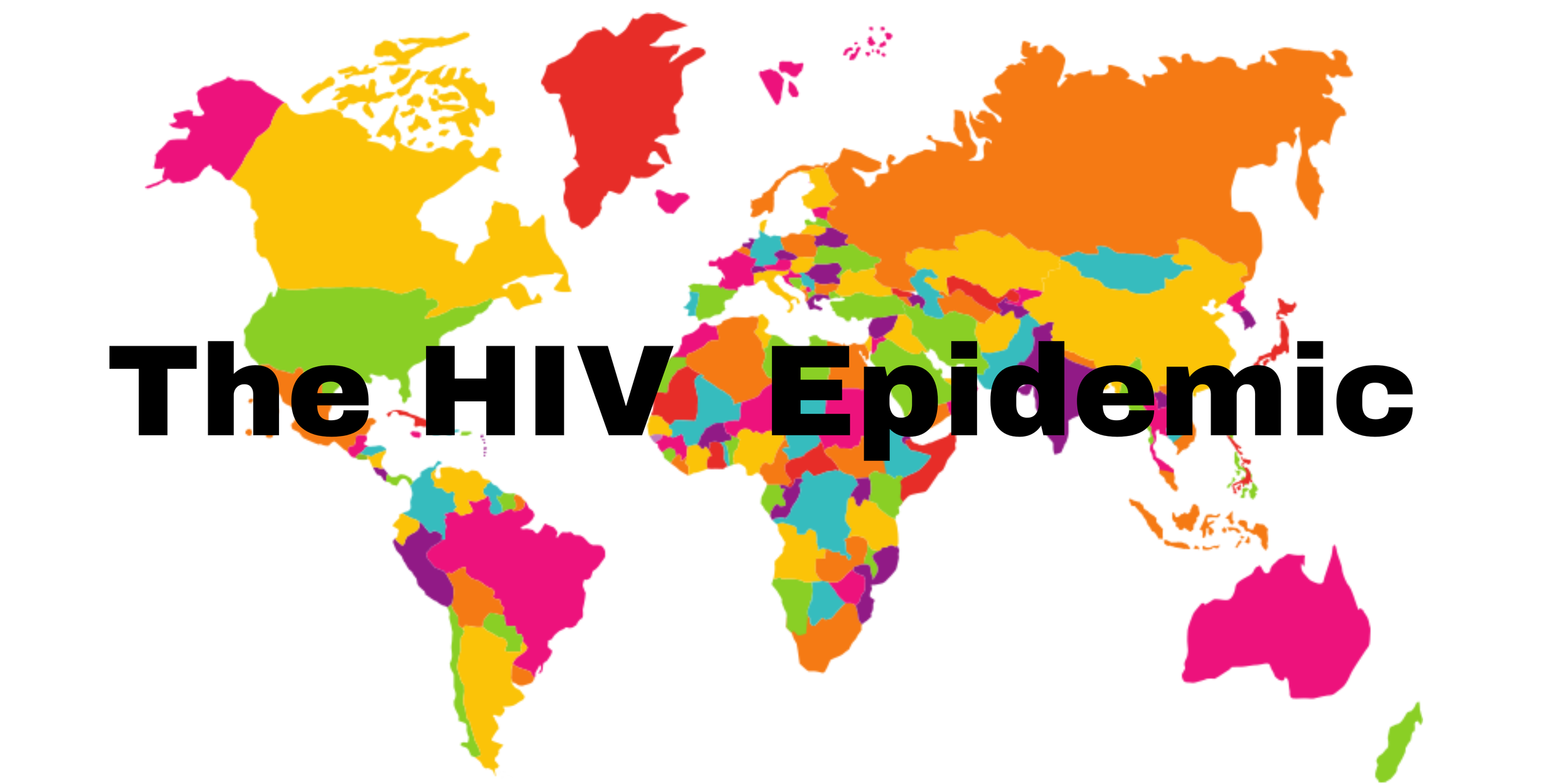HIV Epidemic
TW: illness, death, homopobia, racism, Reagan
Alt text for screen readers here.
Though it likely arrived earlier, HIV was first officially reported in 1981 and the first cases of AIDS (acquired immunodeficiency syndrome) were reported in 5 gay men in Los Angeles. As the first cases were reported, doctors in New York City and San Francisco also reported a cluster of patients with unusual infections and cancers. The first cases of HIV/AIDS in the US were gay men and some of the opportunistic infections were nicknamed things like "Gay Man's Pneumonia" and Kaposi's Sarcoma, a type of cancer often seen in AIDS patients, was nicknamed "gay cancer".
Homosexuality was still highly stigmatized at the time and the HIV epidemic worsened the existing stigma. As with any novel (new) illness, there was a flood of misinformation. A lot of the misinformation about HIV was about how it was transmitted; many people believed it was spread by casual contact - like shaking hands, touching, or hugging, being near a gay man, or through sitting on toilet seats or using the same water fountain. In reality, HIV is spread through vaginal or penile fluids, breast milk, and blood.
In late 1981, pediatric immunologists treated 5 infants that showed similar signs to the HIV+ men diagnosed earlier in the year. The infants' mothers were injectable drug users and sex workers. By the end of the year, there are 16 children under the age of 13 who have had the disease and it's becoming apparent that it is not exclusive to gay men.
Despite evidence that it's - again - not exclusive to gay men, AIDS was sometimes referred to as GRID (gay related immune deficiency) in 1982. This deepened the stigma of the disease and made many people afraid to seek treatment. Likely due to attitudes about homosexuality at the time, there weren't any major fundraisers in the first few years for research and a response to combat the illness - except for one private fundraiser in the early 80s.
In December of 1982, an infant that received multiple blood transfusions at birth developed symptoms of AIDS and doctors speculated it was the same condition, but didn't officially diagnose it. One of the blood donors died from AIDS. Still, evidence that it's not exclusive to gay men is pushed aside and it's still treated as a "gay man disease".
In 1983, the first cases of diagnosed HIV/AIDS in women are reported. The disease was seen in gay men, black people, injectable illicit drug users, and hemophilia patients in disproportionately high numbers. The disease was thought to be spread through sexual activities and blood transmission in reports.
Government response and scientific research is slow and inadequate, which leads to the disease spreading like an uncontrolled wildfire. The populations that were the most affected were populations that were (still are) discriminated against and not considered a "high priority" to the majority. The president of the United States was Ronald Reagan and conservatism was on the rise during the Reagan Era.
Reagan's opinions on gay men, disabled people with hemophilia, black people, sex workers, and illicit drug users were clearly negative. He was a well known bigot and raged against welfare (that a person with hemophilia would have benefited from). Any attempts to ask for help with the epidemic to Reagan were ignored or treated as a joke, such as in the video below. It seemed that Reagan viewed AIDS as an opportunity to wipe out "undesired" populations without having to directly commit genocide - just through negligence. He often tried to feign ignorance or turn it into insinuating that the person asking about it was gay, much like a middle school bully in the early 2000s.
In 1984, the US Department of Health and Human Services announced that they discovered that AIDS was caused a virus and began developing diagnostic tests for it. They also announced that it was transmitted by blood and through sex. There was speculation that it was spread through saliva (it was disproved two years later). The following year, the CDC announced that the cause of AIDS was the HIV virus and released screening guidelines for blood. The first commercial blood test was also released. Surprisingly for the era, Haitians were removed from the list of high risk populations. The year rounded up with a significant increase in New cases.
At this point, many activists had publicly announced their diagnoses and ways they were affected. The inadequate response allowed it to fester and spread much more than it should have. By this time, thousands in the US had died from HIV/AIDS and the stigmas and discrimination were well established and some still persist today.
It took until 1987 for condoms to be recommended for HIV prevention and azidothymidin (AZT) to be used to treat patients. Many healthcare providers refused to care for HIV/AIDS patients and the lesbian community stepped up to care for them. Eventually, healthcare providers were told they had an ethical obligation to care for them and were essentially forced to.
Advancements in treatment remained slow and gay men and BIPOC communities continued to be disproportionately affected. The deadliest year was 1995 and 500,000 cases of AIDS had been reported to the CDC.
Once Reagan left office, the crisis was handled more by Clinton and it was a top priority. With education on prevention, treatment, and overall an adequate response, the rates of infections and deaths decreased for the first time in 1996. Several types of tests - including home test kits - were developed and another medication, nevirapine, was developed to treat HIV.
Cases finally started drastically declining but were still a major issue in Latinx and Black communities. Health initiatives, resources, services, and organizations were created to help those communities, as well as those with hemophilia.
HIV is still a current concern, but there's been a lot of progress in the treatment and prevention of it. Finally in the 2000s, HIV was no longer a death sentence. Unfortunately, due to the early years of the epidemic, there are still many people who hold onto the bigoted ideas. Even in 2023, men who have sex with men are unable to donate blood if they've had sex within the last 3 months (there was an outright ban for several years).
It defies logic to still hold onto beliefs that are based on misinformation that's decades old. This virus does spread easily through anal sex, but it is far from the only way. Our opinions and policies should be based on facts and the facts are clear that HIV is not the "gay plague". It's time for policies and opinions to reflect that.






